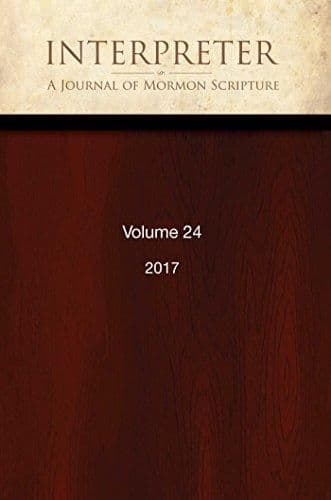Journal
Working out Salvation History in the Book of Mormon Politeia with Fear and Trembling

Title
Working out Salvation History in the Book of Mormon Politeia with Fear and Trembling
Publication Type
Journal Article
Year of Publication
2020
Authors
Goff, Alan (Primary)
Journal
Interpreter: A Journal of Latter-day Saint Faith and Scholarship
Pagination
1-20
Volume
42
Abstract
The Maxwell Institute for the Study of Religion has released another book in its series The Book of Mormon: Brief Theological Introductions. This book by James E. Faulconer more than ably engages five core elements of the book of Mosiah, exploring their theological implications. Faulconer puzzles through confusing passages and elements: why is the book rearranged so that it isn’t in chronological order? What might King Benjamin mean when he refers to the nothingness of humans? And what might Abinadi mean when he declares that Christ is both the Father and the Son? The most interesting parts of the introduction to Mosiah are those chapters that sort through the discussion of politics as both Alma1 and Mosiah2 sort out divine preferences in constitutional arrangements as the Nephites pass through a political revolution that shifts from rule by kings to rule by judges. Faulconer asserts that no particular political structure is preferred by God; in the chapter about economic arrangements, Faulconer (as in his analysis of political constitutions) asserts that deity doesn’t endorse any particular economic relationship.
Subject Keywords
Bibliographic Citation
Terms of use
Items in the BMC Archive are made publicly available for non-commercial, private use. Inclusion within the BMC Archive does not imply endorsement. Items do not represent the official views of The Church of Jesus Christ of Latter-day Saints or of Book of Mormon Central.